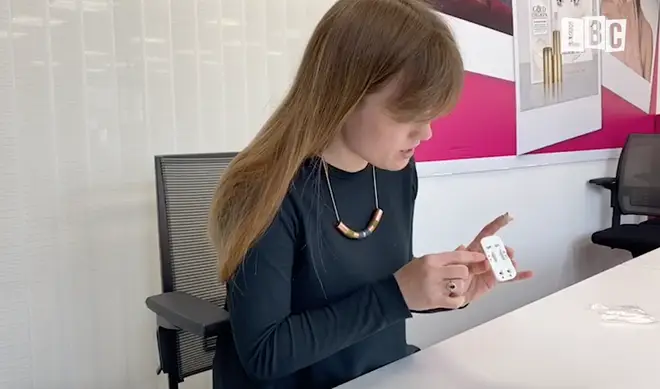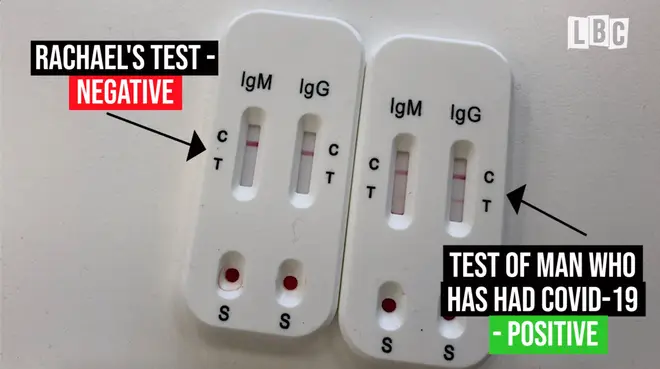
Matthew Wright 7am - 10am
1 May 2020, 09:04 | Updated: 7 June 2023, 08:56

LBC reporter Rachael Venables takes a coronavirus antibody test
One of the keys to ending the coronavirus lockdown is the antibody tests to show if someone has already had Covid-19. LBC's Rachael Venables visited a London lab to see how they work.
The government completed 81,611 coronavirus tests on Wednesday, just over 18,000 tests short of its 100,000 target with a day to go.
One of the big 'testing' promises early in the pandemic involved antibody tests. Prime Minister Boris Johnson once said these tests would be a "game-changer".
The government spent £16million buying stock from China. But when they got them and tested them, they found they weren't accurate enough.
The Minerva Research Lab in central London took on the project. They usually make anti-aging products, but have turned their focus to testing and validating various antibody tests from all over the world.
LBC's correspondent Rachael Venables visited the their lab to see how the tests work.
Their Head of Science and Clinicals David Reilly is actually a biochemist and he explained that the tests are looking for the antibodies that show your have previously had Covid-19.

The subject pricks their finger to draw some blood and using a pipette, place one drop in two wells on the test. They then place three drops of reagent to the blood to draw it up the testing paper.
If you get one line, it's negative and two is positive.
Rachael took the test - and it came out negative as expected.

It's important to note that these antibody tests have not been fully tested and are not recommended to the public.
Mr Reilly said: "None of these tests are designed for home use yet. None of these kits are advertised for home use. They are designed and recommended for use in a clinic or laboratory setting."
Listen & subscribe: Global Player | Apple Podcasts | Google Podcasts | Spotify